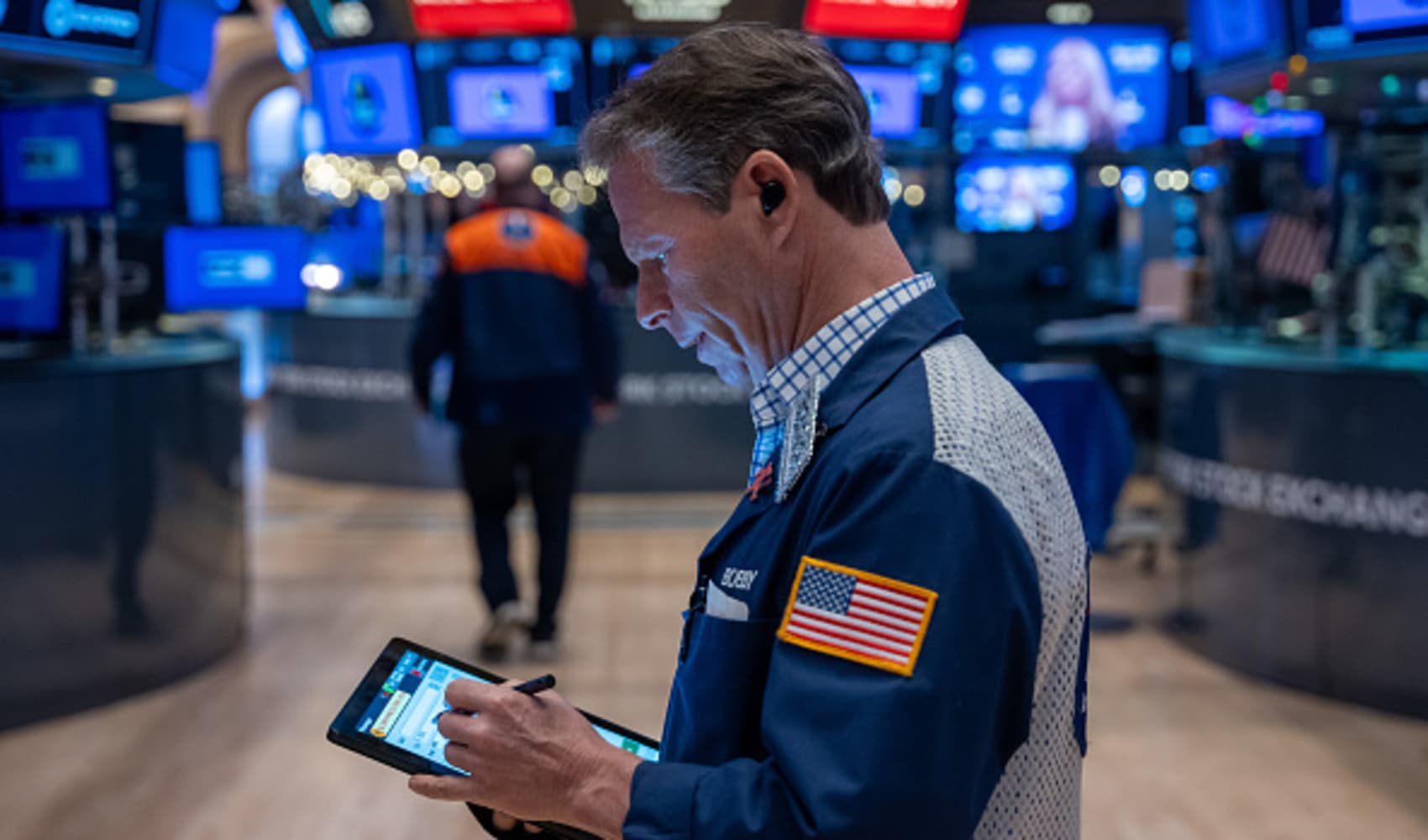
- Sixteen Nobel Prize-winning economists signed a joint letter to warn of the economic risks they see in a potential second term of Donald Trump, including reheated inflation.
- Trump has so far proposed making his first-term tax cuts permanent, imposing universal tariffs on all imports and pressuring the Federal Reserve to reduce interest rates.
- Many of these same economists signed a September 2021 letter in favor of President Biden's Build Back Better investment package. Critics at the time warned that the spending could stoke inflation.
Sixteen Nobel Prize-winning economists signed a joint letter Tuesday warning of what they see as economic risks if former President Donald Trump were to serve a second term, including reheated inflation.
"While each of us has different views on the particulars of various economic policies, we all agree that Joe Biden's economic agenda is vastly superior to Donald Trump's," the economists wrote. Axios was first to report the letter.
"There is rightly a worry that Donald Trump will reignite this inflation, with his fiscally irresponsible budgets," wrote the group of politically progressive academics.
Get Tri-state area news delivered to your inbox.> Sign up for NBC New York's News Headlines newsletter.
Trump has so far proposed making his first-term tax cuts permanent, imposing universal tariffs on all imports, with a China-specific tariff rate between 60% and 100%, and pressuring the independent Federal Reserve Board to cut interest rates.
Economists and Wall Street analysts alike have predicted that any or all of those proposals could reinflate prices, which remain vulnerable despite cooling slightly in recent months.
Joseph Stiglitz, who won the Nobel Prize in 2001, led the effort to publish Tuesday's letter. His co-signers include George Akerlof, Sir Angus Deaton, Claudia Goldin, Sir Oliver Hart, Eric Maskin, Daniel McFadden, Paul Milgrom, Roger Myerson, Edmund Phelps, Paul Romer, Alvin Roth, William Sharpe, Robert Shiller, Christopher Sims and Robert Wilson.
"Nonpartisan researchers, including at Evercore, Allianz, Oxford Economics, and the Peterson Institute, predict that if Donald Trump successfully enacts his agenda, it will increase inflation," the economists wrote.

Stiglitz said he felt compelled to initiate the letter based on a flurry of recent polling in which voters said they trusted Trump over Biden to manage the U.S. economy.
Money Report
"A lot of people think Trump would be better for the economy than Biden," Stiglitz told CNBC in an interview. "I thought it would be important for Americans to know that at least a group of credible economists differs very strongly."
The timing of Tuesday's letter was notable, coming just days before Trump and Biden are scheduled to face off in the first presidential debate of the general election. The Atlanta debate hosted by CNN is expected to dedicate significant time to the economy and specifically, inflation.
The Trump campaign staunchly rejected the Nobel economists' position.
"The American people don't need worthless out of touch Nobel peace prize winners to tell them which president put more money in their pockets," Trump campaign spokesperson Karoline Leavitt said in a statement to CNBC.
Under Trump, the December year-over-year Consumer Price Index fell during three of his four years in office.
The Biden campaign seized the opportunity to tout the letter on Tuesday: "Top economists, Nobel Prize winners, and business leaders all know America can't afford Trump's dangerous economic agenda."
The Nobel laureates' letter contained a distinct political perspective, as well as an economic one.
Many of these economists signed a similar September 2021 letter expressing support for President Joe Biden's Build Back Better package. Critics at the time argued that the massive spending packages would drive up inflation.
At the time, Stiglitz observed that some people "invoked fears of inflation as a reason to not undertake" the Build Back Better investments. "This view is short-sighted,"he said in a press release.
This time around, Stiglitz and his co-signers took a more cautious approach to inflation, after the U.S. economy has spent that last year recovering from 2023's scorching inflation spike.
The higher prices were partly due to pandemic-era supply chain snarls, which left the global trade system unable to meet the pent up demand of American consumers.
But this demand was itself the result of a U.S. economy that weathered the pandemic better than many had anticipated it would — thanks to generous government subsidies like the expanded Child Tax Credit and the Paycheck Protection Program.
Since then, Stiglitz said, Biden has helmed a successful effort to cool those inflation peaks.
"Inflation has been brought down, actually, remarkably quickly," he said. "I would say it's because of Biden."
— CNBC's Kevin Breuninger contributed to this report.






